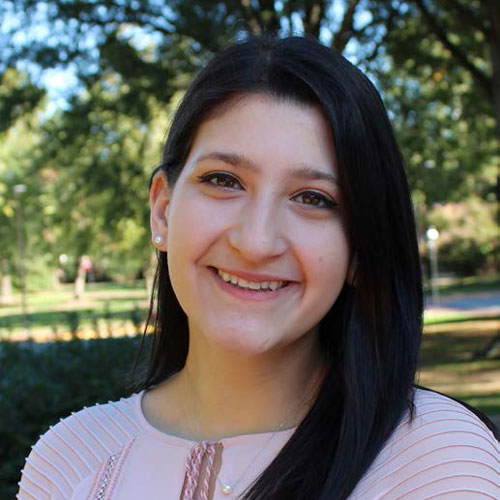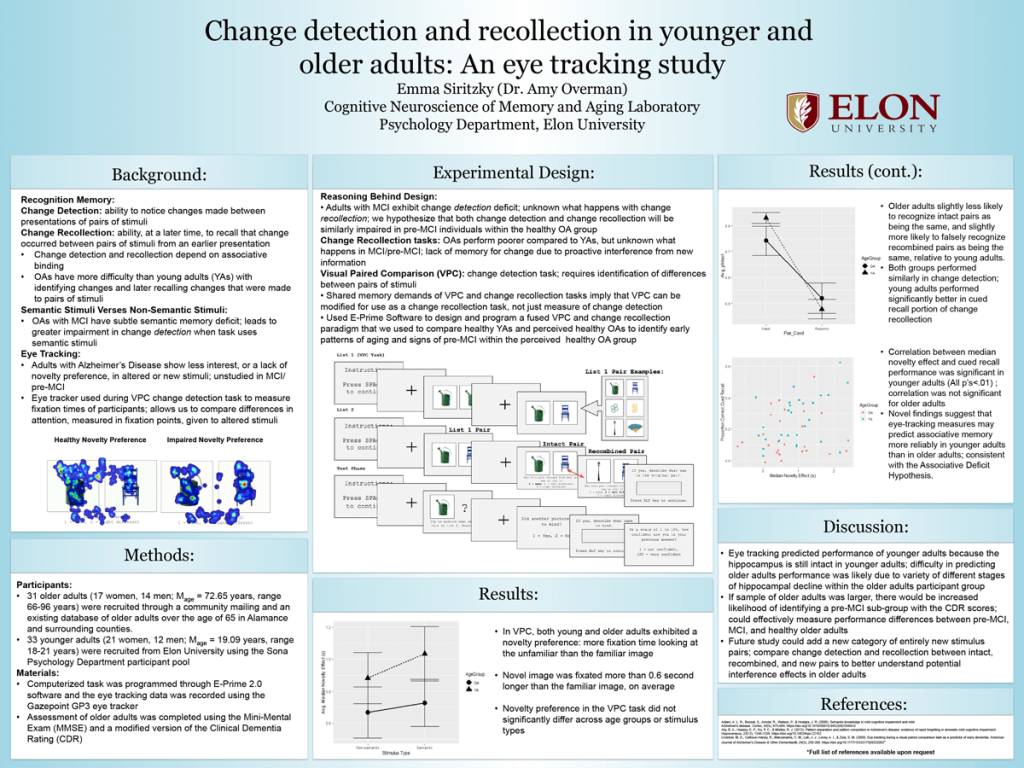Emma Siritzky
Class of 2020
- Psychology

Change Detection and Recollection in Younger and Older Adults: An Eye Tracking Study
Project Mentor:
- Amy Overman, assistant dean of Elon College, the College of Arts and Sciences, and professor of psychology
Project Abstract
Prior research has found that hippocampal function is related to eye movements in response to unfamiliar stimuli (novelty preference) in the Visual Paired Comparison task (VPC; Manns, Clark, & Squire, 2000). A separate line of research found that age differences in memory performance when participants are required to notice a change between stimuli (change detection) and remember changes that were previously detected (change recollection; Wahlheim, 2014). It is unknown whether VPC performance is related to change detection and change recollection performance, which is critical for understanding neural mechanisms of memory. In this study, younger (age 18-25; n=33) and older adults (age 65+; n=31) were tested using a novel experimental design in which a modified version of VPC measured novelty preference for image-based stimuli, combined with associative memory tasks that measured change detection and change recollection (Wahlheim, 2014). Participants first completed VPC, in which an image was paired with a copy of itself during a familiarization trial, after which one copy changed to a different image (recognition trial). Eye movements were recorded using a Gazepoint eye tracker. This was followed by a memory task in which the same images were presented in either intact or recombined pairs (change detection). The subsequent task presented a cue image and participants were asked to recall what the cue’s associate had been during the change detection phase, and whether they recalled a prior associate (change recollection) from the VPC phase. In VPC, both young and older adults exhibited a novelty preference such that they spent more fixation time looking at the unfamiliar than the familiar image. In change detection, both groups performed similarly; however, in the cued recall portion of change recollection, young adults performed significantly better than older adults. Further, young adults’ novelty effect in the VPC task was significantly positively correlated with performance in change detection and cued recall, whereas this correlation was not significant among older adults. (All p’s<.01). The results provide novel eye-tracking evidence that item encoding does not predict associative memory in older adults, providing new support for the Associative Deficit Hypothesis (Naveh-Benjamin, 2000; Overman et al., 2018).
 Download Project Presentation
Download Project Presentation